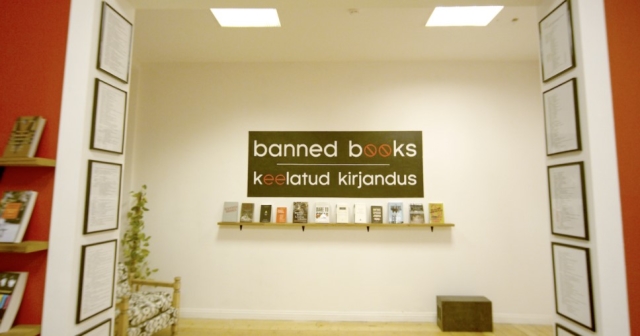You may be surprised to learn just how many books continue to be banned in various parts of the world, sometimes for curious reasons. This phenomenon is at the core of the new Banned Books museum in Tallinn, which recently opened its doors to the public in the Estonian capital.
This new institution allows visitors to delve into the history of literary censorship with around 100 books that were once or are still banned in countries such as China, Russia and Estonia, among others. It features classic novels such as “We” by Yevgeny Zamyatin and William Golding’s “Lord of the Flies,” but also more recent bestsellers like “The Da Vinci Code” by Dan Brown or Margaret Atwood’s “The Handmaid’s Tale.”
Despite its huge success, Dan Brown’s novel was taken off Lebanese shelves following a complaint filed by Catholic authorities. The novel was considered “insulting” to Christians since it alluded to Jesus’s private life and his alleged marriage with Mary Magdalene. Among other examples of literary censorship, Margaret Atwood’s “The Handmaid’s Tale” raised concerns in the United States. It features in a field report of the American Library and Office for Intellectual Freedom among the ten books most censored in 2019 in the U.S.
These stories of censorship are told at the Museum of Banned Books in order to ensure that “people can continue to progress by being able to freely share, challenge, and refine their ideas.” Joseph Maximillian Dunnigan, founder of the museum, explained that with the museum, “we want to raise people’s awareness of the long history of censorship and the importance of freedom of speech. Freedom of thought and expression is not a universally accepted human right to this day. I am happy to contribute to the dissemination of freedom of speech with the museum.” He added that he was convinced that a small place in the world where these ideas can be preserved and protected should exist.
View this post on Instagram
The museum recently opened its doors to the public, it will also soon offer special events on literary censorship. A book club and a podcast are also in the pipeline. RGA
RELATED STORIES:
Librarian uses drones to deliver books to students amid COVID-19



